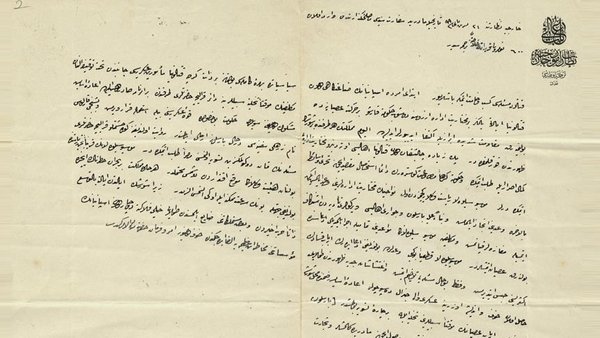Secessionist sentiments were documented in Catalonia more than 130 years ago by an Ottoman diplomat to Madrid, a leading historian said Thuesday.
Diplomatic letters from Sultan Abdulhamit II's envoy in 1886 warned that "violent resistance" in the region could lead to wider conflict.
An Oct. 1 referendum that was marred by violence saw 90 percent vote in favor of splitting from Spain, although only 2.3 million of Catalonia's 5.3 million registered voters took part.
On Tuesday, Catalan President Carles Puigdemont, signed an independence declaration, paving the way for secession from Madrid.
However, the region has a distinct history dating back to the 11th century and in the late 19th century an Ottoman diplomat was on hand to witness a resurgence in Catalan nationalism.

"The Catalan issue appears to turn to a fearful situation," the unidentified acting ambassador wrote on Nov. 21, 1886.
"While as an industrial center of Spain, the Catalonia state only shows violent resistance but is wary of rising against the government on purpose to set up an autonomous government.
"This is feared to lead to conflict across the country."
Catalonia was part of the kingdom of Aragon before it was merged by marriage with Castile in the 15th century to create Spain. The region was brought closer to the Spanish state until a surge in a demand for greater autonomy in the 19th century.
With the introduction of a republic in 1931, Catalonia received broad autonomy. The region was a Republican stronghold during the civil war and Gen. Francisco Franco's victory said autonomy revoked and the Catalan identity repressed.
Commenting on the Ottoman manuscripts, Prof. Osman Kose said Catalonia's separatist revival in the 1880s reflected rising nationalism across Europe.
"The Ottoman Empire followed developments regarding Catalan's efforts to gain an autonomous state day by day with interest," he told Anadolu Agency.
"During that period, Ottomans, like the all the world, followed the developments in Spain, paying utmost attention. The separatist Armenian events during that time, which dominated the world agenda, had drawn Abdulhamit II's attention to Spain, which had similar events.
"The duty of acting ambassador in Madrid was to definitively inform the sultan of everything."